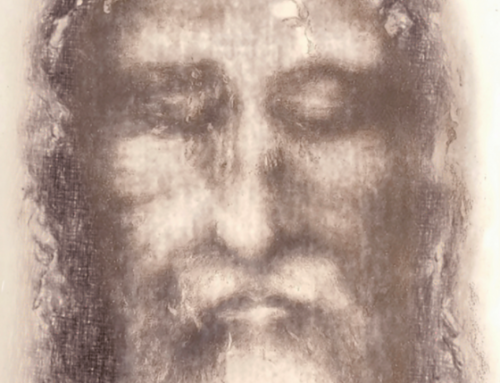Russia’s nineteenth-century literary luminaries all found themselves wrestling with a particularly Romantic archetype: the Superfluous Man. Bored, confused, dissolute, yet noble and aristocratic, the Superfluous Man experiences tragedy in his reckless pursuit of passion. And I can’t help but wonder whether there is any hope for these characters—both the Russians in the novels, and the men in my own time and place.
 I spent much of my summer catching up on works of fiction I want to read but inevitably never get to during the academic year. I’m a convinced literary Russophile. The great nineteenth-century Russian authors fascinate me, and it is difficult to think any country enjoyed the talents of a more iconic group in a single century. Dostoevsky, Goncharov, Lermontov, Pushkin, Turgenev, and Tolstoy all inevitably left their mark on Russian literature and on fiction in general.
I spent much of my summer catching up on works of fiction I want to read but inevitably never get to during the academic year. I’m a convinced literary Russophile. The great nineteenth-century Russian authors fascinate me, and it is difficult to think any country enjoyed the talents of a more iconic group in a single century. Dostoevsky, Goncharov, Lermontov, Pushkin, Turgenev, and Tolstoy all inevitably left their mark on Russian literature and on fiction in general.
Every one of the aforementioned authors were undoubtedly shaped by Christianity. Each author put their sense of anguish over sin and grace into their fiction. They all struggled to reconcile divine and human goodness to the inequities and imperfections they identified in their own society. For all the Russian Empire’s hierarchical and political imperfections, however, each man seemed less confused about what they were—generally noble or at least aristocratic scions—than who they were. With the possible exception of Dostoevsky, Russia’s literary luminaries in the nineteenth century all found themselves wrestling with a particularly Romantic and Russian type: the Superfluous Man.
The name given to this literary type comes from Ivan Turgenev’s 1850 novella and the eponymous collection of short stories, The Superfluous Man. Turgenev’s novella, however, was not the first time the Superfluous Man appeared in Russian literature. Alexander Pushkin is better known for his poetry than his prose, but in 1825 his novel in verse, Eugene Onegin, introduced the bored, confused, dissolute, yet noble aristocrat to literate audiences in imperial Russia. Eugene’s world gives him everything a young man might desire, but he nonetheless struggles with ennui, boredom, and unfulfilled passion. One might be quick to see Eugene as immoral, and he is, but he is not malicious nor power-hungry. He is searching for something, generally love, but he nonetheless spurns the attentions of the pretty and kind-hearted Tatyana. When a rival grows jealous of Eugene, events take a turn that will consign Eugene to the terrible fate of indulgent and lonely superfluity.
In 1841 novelist and poet Mikhael Lermontov’s A Hero of Our Time made literary man even more real in the contradictory character of Pechorin. Every bit the Superfluous Man ala Eugene Onegin, Pechorin appears far more real in many ways because he is far more aware. Pechorin’s constant aim is “to make himself the hero of a novel.” In many ways, Lermontov has Pechorin succeed in the fictional character’s quest. The narrator in A Hero Of Our Time recalls that Pechorin “so often endeavoured to convince others that he is a being created not for this world and doomed to certain mysterious sufferings, that he has almost convinced himself that such he is in reality.” Like Eugene Onegin, Pechorin’s struggles to understand himself, and his loves, proves his undoing. Pechorin, and also Onegin, are not incapable of love. They care deeply. Pechorin tells a comrade that his “present feeling is not that restless craving for love which torments us in the early days of our youth, flinging us from one woman to another until we find one who cannot endure us.” He is trying to understand his feeling of “constancy—that sincere, unending passion which may be expressed mathematically by a line falling from a point into space—the secret of that endlessness lying only in the impossibility of attaining the aim, that is to say, the end.” What the end is, it seems, proves to be the greatest struggle for Pechorin.
The end, he seems to know, is marriage. The notion that the early twentieth century United States uniquely bred men and women who fear marriage and commitment is ahistorical. Lermontov’s Pechorin fears marriage more than anything else.
I SOMETIMES despise myself . . . Is not that the reason why I despise others also? . . . I have grown incapable of noble impulses; I am afraid of appearing ridiculous to myself. In my place, another would have offered Princess Mary son coeur et sa fortune; but over me the word “marry” has a kind of magical power. However passionately I love a woman, if she only gives me to feel that I have to marry her—then farewell, love! My heart is turned to stone, and nothing will warm it anew. I am prepared for any other sacrifice but that; my life twenty times over, nay, my honour I would stake on the fortune of a card . . . but my freedom I will never sell. Why do I prize it so highly? What is there in it to me? For what am I preparing myself? What do I hope for from the future?
The end of love and romance, matrimony, frightens this noble but heartbreakingly confused young nobleman, who like Eugene Onegin meets a tragic end.
Not all of the Superfluous Men meet tragic ends. Some have tragic beginnings. Although Turgenev’s opus, Fathers and Sons, focuses on a conservative Russian nobleman whose son has befriended a radical at university, his 1860 novella First Love narrates the story of a sixteen-year-old Vladimir who falls in love with Zinaida, five years his senior. Idealistic Vladimir is ultimately betrayed by someone close to him, whose Russian stoicism, soldierly “British” masculinity, and raw sexuality overshadow the devoted and good but naïve teenager’s advances to Zinaida. Before he is even a man, Vladimir has become jaded and eventually superfluous. Ivan Turgenev chronicled the tensions the Russian aristocracy experienced as they confronted modernity and the West in the middle of the nineteenth century. By the 1850s Western ideas and Western radicalism appeared in Russia largely through the influence of Russian students who attended German universities. The German states and their societies especially fascinated Turgenev, who set several of his novellas—Annouchka and Torrents of Spring among others, in Germany.
The novel that most thoroughly rejected the Superfluous Man was Feodore Dostoevsky’s The Idiot. This 1868 novel introduced a character into the Russian legendarium, Prince Myshkin, who was in every way an inversion of the Superfluous Men. He was neither good-looking, nor wealthy, not talented, nor popular. An epileptic, Prince Myshkin recommends himself to the reader simply through his goodness and kindness. But kindness and morality prove inadequate to a life of humane flourishing. Myshkin’s very goodness and decency finally betray him.
I left my readings fascinated by the Superfluous Men, the authors who created their stories, and the late imperial Russia they inhabited. I also was somewhat saddened that the authors, many of whom were profoundly Christian to a considerable degree, could not find salvation of some sort for the Superfluous Men. I didn’t want a frivolous happy ending, but could there be any sort of hope for Superfluous Men, both the Russians in the novels I read, and men in my own time—the twenty-first century—and in my own place—the United States?
It is perhaps unsurprising that redemption for the Superfluous Men found its way into the fiction of the elderly Leo Tolstoy. His epic War and Peace, written when he was still a relatively young man, featured a Superfluous Man of sorts. Pierre Bezukhov is a dandy, a radical, a noble bastard, and dissolute at the beginning of the novel. And his character endures trials and tribulations and becomes a good man. But unlike the other Superfluous Men, Pierre never had so secure a social station. He never knew who he was. His story is one of finding himself. Pechorin, Onegin, and others all lose themselves.
Tolstoy himself seemed to revert back to a more classical Superfluous Man two years after he wrote War and Peace. In 1863 he published The Cossacks. Set in the Caucasus Mountains in the early 1850s, it follows a set of army officers fighting Chechen guerillas. Aristocratic easygoing idealist Olenin arrives and falls in love with the setting and a young woman. He begins to hope in a pristine, natural life far from the decadence of life in Moscow or St. Petersburg. He hopes for a pure passionate love with a Caucasian village girl. Ultimately Olenin fares no better than the other Superfluous Men. All his hopes collapse, and he, inferentially, goes back to one of Russia’s metropolises and lives the fashionable but disillusioned life of his peers.
After I finished The Cossacks I wanted to read Tolstoy’s short and very manageable novelized autobiographical trilogy: Childhood, Boyhood, and Youth. Childhood ends with a familial tragedy that sets the tone for Nicholas—Tolstoy’s novelized self—and launches him into the foppish life of an aristocratic Russian teenager. Boyhood is that story: the story of the advent of a Superfluous Man. Nicholas makes friends with other will-be Superfluous Men, and the work ends preparing the reader for more potential degeneracy. And it’s likely that Tolstoy’s early materialism and Romanticism left him interested in little more than that. No character in Boyhood represented profligacy more than Prince Nekhliudoff, who helps young Nicholas become like him: a superfluous soul, with nothing ahead but a life of indulgence and mistreating their servants, families, and whatever women—noble or serf—they might unfeelingly bed in the future.
In some ways I got bored of Boyhood. I was tired of Nicholas’ shenanigans. He wasn’t even a true superfluous man; he was more of a poor teenage imitation. But the moment I saw the name Nekhliudoff my attention was arrested. That name meant more to me than it would have meant to ANYONE reading a little-known twenty-eight-year-old Russian count’s autobiographical novel in 1854. Why would that name grab me?
Sometime in the late 1870s, Tolstoy experienced a sort of religious conversion. More precisely, he became profoundly aware of the reality of original sin. Although he maintained a precarious relationship with the Russian church, he became devout. His last novel was Resurrection. I read it during my first year of graduate school. It’s a moving tale of a prince who seeks to atone for a terrible sin committed in his youth. Very much the youthful Superfluous Man, he lives recklessly and without consequences. The story centers around a moment of passionless and reckless sexual conquest that destroys the life of a young peasant woman forever, while the prince lives on in privilege, his life marvelously untouched by sins committed against the weakest of these. Realizing that he must seek out the woman he wronged so many years earlier, the prince begins a journey that exposes him to the haunting reality of human sin and suffering. The Prince’s life is changed forever. His knowledge feels almost unbearably heavy, and he is haunted by his inability to use his money or station to fix the wrong he committed. He realizes that his deliverance must be otherworldly in its origins, somehow working itself out in this world. His deliverance must somehow be incarnate. Therein lay the Prince’s moral resurrection. The Prince was named, incidentally, Nekhlyudov. Tolstoy, in his last major work of fiction, finally gave the Superfluous Man something he never found in earlier works: redemption from sin.
The Imaginative Conservative applies the principle of appreciation to the discussion of culture and politics—we approach dialogue with magnanimity rather than with mere civility. Will you help us remain a refreshing oasis in the increasingly contentious arena of modern discourse? Please consider donating now.
The featured image is an illustration of Eugene Onegin (1908) by Elena Samokich-Soudkovskaïa (1863-1924), courtesy of Wikimedia Commons.







“Tolstoy himself seemed to revert back to a more classical Superfluous Man two years after he wrote War and Peace. In 1863 he published The Cossacks.”
This gives the impression War and Peace preceded The Cossacks. It was the other way around. The Cossacks preceded War and Peace by two years (which first began serial publication in 1865).
Surprised also to see no mention of Dostoevsky’s most direct engagement with the idea of the “superfluous man,” Notes From Underground.
This is great, Miles, thanks. Your reading of the 19c Russians is certainly more complete than mine but applying this trope to what I have read, it’s interesting to see how it might further play out in Dostoevsky.
Fyodor Karamozov could be seen as the superfluous man gone to seed, a negative example that propels the brothers into more constructive ends – with, perhaps Mitri as cutting it close. But his way as the superfluous man is arrested by his (unjust) conviction for patricide. You also have the strong Resurrection theme in BK.
I’m C&P, Raskolnikov certainly has all the makings of the SM, except one essential: money.
Makes me want to read more of the Russians. Thank you!